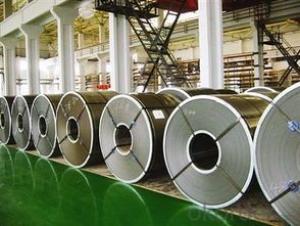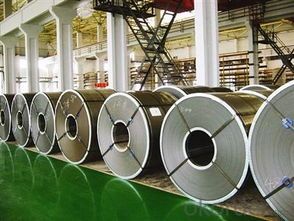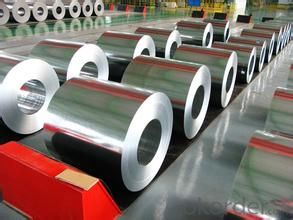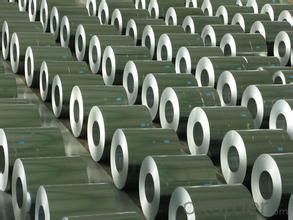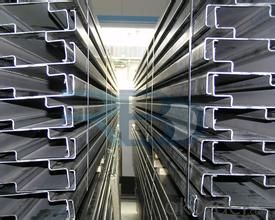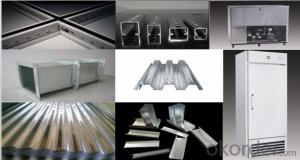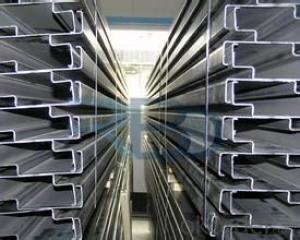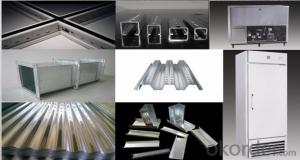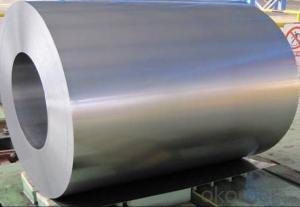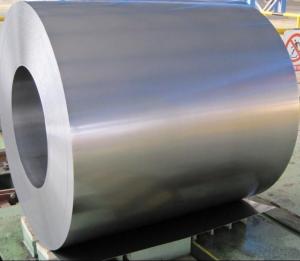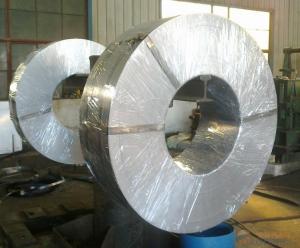Hot-dip Zinc Coating Steel Building Roof Walls With Best Quality
- Loading Port:
- China main port
- Payment Terms:
- TT OR LC
- Min Order Qty:
- 50 m.t.
- Supply Capability:
- 10000 m.t./month
OKorder Service Pledge
OKorder Financial Service
You Might Also Like
Hot-dip Zinc Coating Steel Building Roof Walls With Best Quality
1.Structure of Hot-Dip Galvanized Steel Sheet Description:
Hot-dip galvanized steel coils are available with a pure zinc coating through the hot-dip galvanizing process. It offers the economy, strength and formability of steel combined with the corrosion resistance of zinc. The hot-dip process is the process by which steel gets coated in layers of zinc to protect against rust. It is especially useful for countless outdoor and industrial applications. Production of cold formed corrugated sheets and profiles for roofing, cladding, decking, tiles, sandwich walls, rainwater protective systems, air conditioning duct as well as electrical appliances and engineering.
2.Main Features of the Hot-Dip Galvanized Steel Sheet:
• Excellent process capability
• Smooth and flat surface
• Workability, durability
• Excellent anticorrosive property
• High strength
• Good formability
• Good visual effect
3.Hot-Dip Galvanized Steel Sheet Images
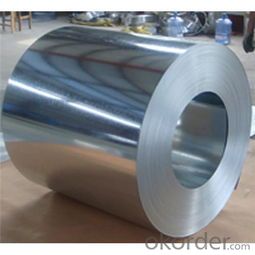
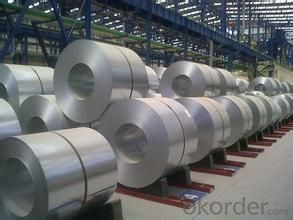
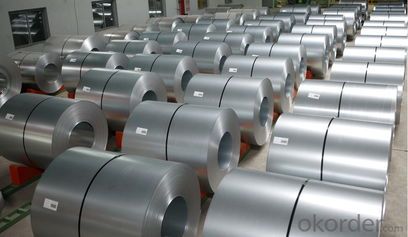
4.Hot-Dip Galvanized Steel Sheet Specification
Standard: ASTM, JIS,EN
Grade: CS, DX51D+Z,SGCC, SS 230~550,S220GD+Z~S550GD+Z, SGC340~SGC570
Thickness: 0.18mm~5mm
Width: max 2000mm
Coil weight:3-12 MT
Coil ID:508/610mm
Surface structure: zero spangle, regular spangle or minimum spangle
Surface treatment: Chromate treatment, Oiled/dry, skinpassed/non-skinpassed
Packing: Standard seaworthy export package
Technology test results:
Processability | Yield strength | Tensile strength | Elongation % | 180°cold-bending |
Common PV | - | 270-500 | - | d=0,intact,no zinc removal |
Mechanical interlocking JY | - | 270-500 | - | d=0,intact,no zinc removal |
Structure JG | >=240 | >=370 | >=18 | d=0,intact,no zinc removal |
Deep drawn SC | - | 270-380 | >=30 | d=0,intact,no zinc removal |
EDDQ SC | - | 270-380 | >=30 | d=0,intact,no zinc removal |
5.FAQ of Hot-Dip Galvanized Steel Sheet
We have organized several common questions for our clients,may help you sincerely:
1.How to guarantee the quality of the products?
We have established the international advanced quality management system,every link from raw material to final product we have strict quality test;We resolutely put an end to unqualified products flowing into the market. At the same time, we will provide necessary follow-up service assurance.
2. How long can we receive the product after purchase?
Usually within thirty working days after receiving buyer’s advance payment or LC. We will arrange the factory manufacturing as soon as possible. The cargo readiness usually takes 15-30 days, but the shipment will depend on the vessel situation.
- Q: What are the different types of surface defects in steel coils?
- Some common types of surface defects in steel coils include scratches, pits, rust, scaling, laminations, and waviness.
- Q: Which steels were origianally designed to be used to cut and shape metals and other materials?- alloy steel- high carbon steel- carbide steel- tool steelthanks
- In your choices carbide steels are used for milling and drilling purposes and high speed steel are used in lathe operations. For shaping the tools, tool grinding machines are used and for initial sharing dyes are used.
- Q: What are the safety precautions to be taken while handling steel coils?
- When handling steel coils, several safety precautions should be followed to ensure safe practices. These include wearing appropriate personal protective equipment (PPE), such as gloves, safety goggles, and steel-toed boots, to protect against potential hazards. It is important to use proper lifting techniques and equipment, such as forklifts or cranes, to prevent musculoskeletal injuries. Coils should be stored and stacked in a stable manner to avoid toppling or shifting. Additionally, workers should be trained on how to safely handle coils, including being aware of sharp edges, the weight of the coils, and potential pinch points. Regular inspections of equipment and work areas should be conducted to identify and address any potential safety hazards.
- Q: What are the different types of steel coatings for coils?
- Coils can be coated with various types of steel coatings, each with its own unique properties and advantages. Some of the most commonly used coatings include: 1. Galvanized Coating: This type of steel coating is widely utilized for coils. It involves applying a layer of zinc to the steel, which provides excellent protection against rust and corrosion. It is particularly suitable for outdoor applications or environments with high moisture levels. 2. Galvannealed Coating: Galvannealed steel coating involves subjecting the galvanized steel to additional heat treatment, resulting in a matte finish and improved adhesion for paint. It offers enhanced corrosion resistance and is often preferred in the automotive and construction sectors. 3. Aluminized Coating: Coating steel coils with aluminum provides outstanding heat resistance and corrosion protection. Aluminized steel is commonly employed in exhaust systems and other applications involving high temperatures. 4. Organic Coatings: Steel coils can also be coated with organic materials like paints or powder coatings. These coatings offer additional protection against corrosion and can be customized to meet specific aesthetic requirements, available in a wide range of colors. 5. Tin Coating: Tin-plated steel coils are covered with a layer of tin, which provides excellent solderability and resistance to corrosion. This type of coating is frequently used in the production of cans and other food packaging materials. 6. Phosphate Coating: Phosphate coatings are often applied as a pre-treatment before other coatings to enhance adhesion and corrosion resistance. They create a thin, crystalline layer on the steel surface, facilitating better adhesion of paint or powder coatings. These examples illustrate the diversity of steel coatings available for coils. The choice of coating depends on specific application requirements, considering factors such as corrosion resistance, heat resistance, paint adhesion, and aesthetic preferences.
- Q: But we've had a problem with bears being attracted to the water in the Intex Inflatable pools, the bear would come at night every so often and push on the sides letting out the water.Would a bear be able to bend a steel frame before I go and spend money?
- depends on the steel thickness and positioning. frm your question I'm guessing you're not really well versed in steel framing or use... im guessing whatever you build, a bear can destroy. if i was to build it not even 100 bears can destroy it. it doesn't require much steel, it's just about bracing the positing of steel and some design.
- Q: How are steel coils used in the manufacturing of industrial mixers?
- Steel coils are used in the manufacturing of industrial mixers as they provide a strong and durable structure for the mixer body. The coils are shaped and welded to create the necessary components, such as the mixing chamber and blade supports. This ensures that the mixer can withstand the high forces and vibrations involved in mixing large quantities of materials in industrial applications.
- Q: What is the standard thickness of steel coils?
- The standard thickness of steel coils can vary depending on the specific application and industry. However, common thickness ranges for steel coils typically fall between 0.015 inches (0.38 mm) and 0.125 inches (3.17 mm).
- Q: Can steel coils be cut?
- Yes, steel coils can be cut.
- Q: I am trying to clean up a stainless steel back splash and some kitchen appliances that have brown spots that look like rust spots. I was able to remove most of them with stainless steel cleaner but does anyone know any tricks?
- if okorder /
- Q: How are steel coils inspected for surface defects using non-destructive testing methods?
- Steel coils are inspected for surface defects using non-destructive testing methods such as visual inspection, magnetic particle inspection, and eddy current testing. Visual inspection involves closely examining the coil's surface for any visible defects or abnormalities. Magnetic particle inspection is used to detect surface cracks and defects by applying a magnetic field and then applying iron particles that reveal any magnetic leakage caused by defects. Eddy current testing is employed to detect surface cracks and defects by inducing an alternating current in a coil that creates a magnetic field, and any changes in the field caused by defects are detected. These non-destructive testing methods help ensure the quality and integrity of steel coils without causing any damage.
Send your message to us
Hot-dip Zinc Coating Steel Building Roof Walls With Best Quality
- Loading Port:
- China main port
- Payment Terms:
- TT OR LC
- Min Order Qty:
- 50 m.t.
- Supply Capability:
- 10000 m.t./month
OKorder Service Pledge
OKorder Financial Service
Similar products
Hot products
Hot Searches
Related keywords
